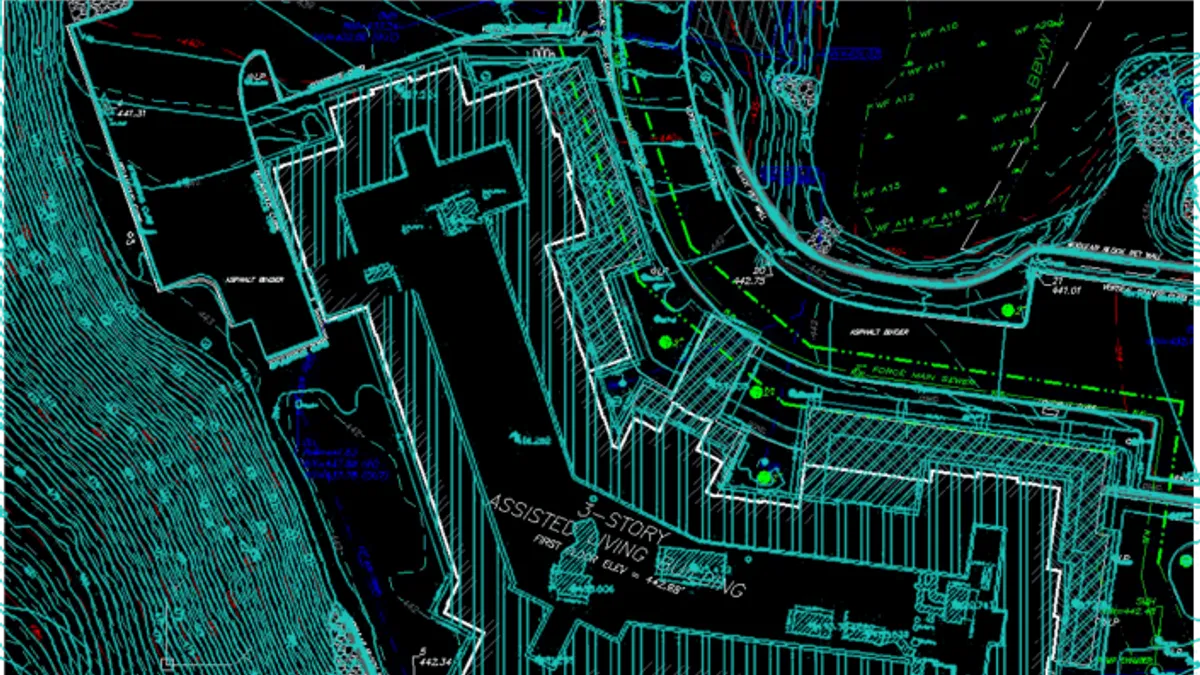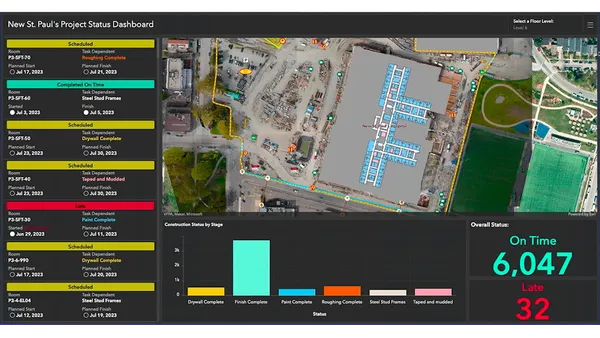Technologies like BIM, drones, virtual reality and real-time workflow software have made an entrance that will forever alter the scope of the construction industry. Every few weeks, Construction Dive provides a roundup of the latest technology product announcements that promise to boost productivity by saving contractors time, money and labor. To view the entire series, click here.
Rhumbix sets out to solve time and material inconsistencies
Mobile platform Rhumbix last week launched a new feature designed for general contractors and subcontractors to submit reports on time and materials via iPhone or iPad for a general contractor to approve.
The system works through a form that can be filled out digitally while in the field, which is automatically sent to the sub and GC upon submission. “Lost tags happen, piles of paper are inefficient and signatures take time,” said Rhumbix CEO Zach Scheel in a press release. “What we’ve done with this update is streamline the workflow by bringing all the pertinent players under one roof. For the first time, owners, GCs, and subcontractors know daily whether they made or lost money on project sites and have visibility into the factors that drive gains and losses in production.”
Geopipe AI wins Cemex Ventures’ attention in funding competition
U.S.-based startup Geopipe, which uses machine learning to create digital, 3D interactive models of urban spaces that designers, engineers and contractors can use in planning and construction, won “best pitch” in Cemex Venture 2018 Construction Startup Competition.
Geopipe captures and analyzes big geographic and numeric data using satellite photos, maps, laser scans and 2D and 3D data from both public and private sources, then uses machine learning and algorithmic analysis techniques to interpret the data.
The competition challenged contenders to vie for access to Cemex Ventures’ investment portfolio, and although Geopipe stood out, seven finalists from six countries have ongoing negotiations with Cemex.
AirWorks aims to automate data image processing
AirWorks, a participant in the Massachusetts Institute of Technology startup accelerator Delta V, automates the processing of 20 million points of data from drone images. The founders of AirWorks formed it to both speed up the processing of aerial mapping from drone images and to automate post-processing of the data to produce CAD models for immediate use by civil engineers and architects.
Founders David Morczinek and Adam Kersnowski and their team found that for a given hundred-acre plot of land, “it would take two professional land surveyors approximately six weeks to survey the area,” according to a recent Forbes article about AirWorks, which also noted that a lack of automated information processing for a two-month land surveying stage for a construction project could cost up to $20,000.
Construction firms often overlook the usefulness of drones, as they lack the knowledge of how to turn the images taken into useable data, the article continued. “We knew that there was a gap between what was possible versus what goes on in the industry, and we’ve positioned AirWorks to be the bridge between the two sides,” Kersnowski reportedly told Forbes.
Leica’s new utility detectors work wirelessly, automatically
Leica Geosystems recently announced a series of tools that use digital signal processing to automatically detect utilities and other underground assets.
The Swiss firm, part of Hexagon, said in a press release that its Leica DD Smart utility locator pairs with its DX Manager Shield software to collect, transfer and access data remotely via a cloud-based hosted service for multiple users across multiple sites. The Smart series of locators use on-board alerts, video support and an automatic locating process, and work with Bluetooth to send information to field controllers and mobile phone devices without the need for wires or an internet connection.
Rhombus, a camera security solution for jobsites, wins startup of the month
Sacramento, California-based cloud-managed video security system purveyor Rhombus Systems won startup of the month in Comstock’s Magazine.
The construction industry is a notable base of clients for the technology. “With Rhombus Systems cameras, customers can view and share livestreams, manage unlimited locations from one console and set up other features, like alerts,” Comstock’s reported. “The technology uses facial recognition to identify intruders, and analytics to track the number of people in different rooms or buildings.












